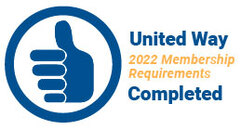|
Today’s column is written by Jason Padgett, Program Director with the Phoenix Paramedics Quick Response Team and Recovery Community Advocate. He shares his view of recovery and how communities can support this process. Jason’s vision of recovery is not only focused on helping an individual maintain sobriety, but also creating a community level of support that incorporates a wholistic view of recovery which includes all aspects of life. SAMSHA website https://www.samhsa.gov/find-help/recovery lists the four pillars of recovery as:
We soon realized that successful recovery systems were more than a checklist. Meaningful change requires learning from those who have gone before you, continuing dialogue with those in the field, and listening to the voices of those in recovery. What we took away from those early conversations was the need for a philosophical change that is often articulated as ‘bringing recovery to practice’ or RTP. While there are several key components interwoven in the RTP ideology, the central theme revolves around all parties maintaining a focus on the optimal outcome for each individual: long term recovery. When we begin to see people as individuals, when we begin to believe that recovery is possible and work with those individuals toward reaching their full potential, allowing each person to choose their recovery path, we embrace the best practices to facilitate the goal of long term recovery. We began to realize that Bill White is correct when he touts “there are multiple pathways to long term recovery and all are a cause for celebration.” There is no one correct way to recover. Some find success in 12-step programs, others prefer cognitive based therapies that focus on changing thinking and addressing triggers. Some embrace spiritually-based programs, while others find secular programs more helpful. Whatever path the individual chooses, we find that respect, peer support, addressing underlying trauma, and taking a wholistic approach are essential. People in the beginning stages of recovery are very fragile and easily discouraged. They need support and a “warm-handoff” to navigate the resources and services they need to be successful. More and more service providers have begun to embrace this idea and help their clients connect face-to-face with other services and resources. If the above paragraph describes what a person seeking help for a substance use disorder experiences in your System of CARE, then you have likely brought Recovery to Practice; if not, it’s never too late for an overhaul. Jason Padgett, Recovery Community Advocate
0 Comments
Your comment will be posted after it is approved.
Leave a Reply. |
AuthorLynn Saylor is the AmeriCorps member working with the United Against Opioid Abuse Initiative alongside the White County United Way. She is a major facilitator of the United Council on Opioids serving White County and a regular contributor to local media. Archives
October 2020
Categories
All
|

 RSS Feed
RSS Feed
